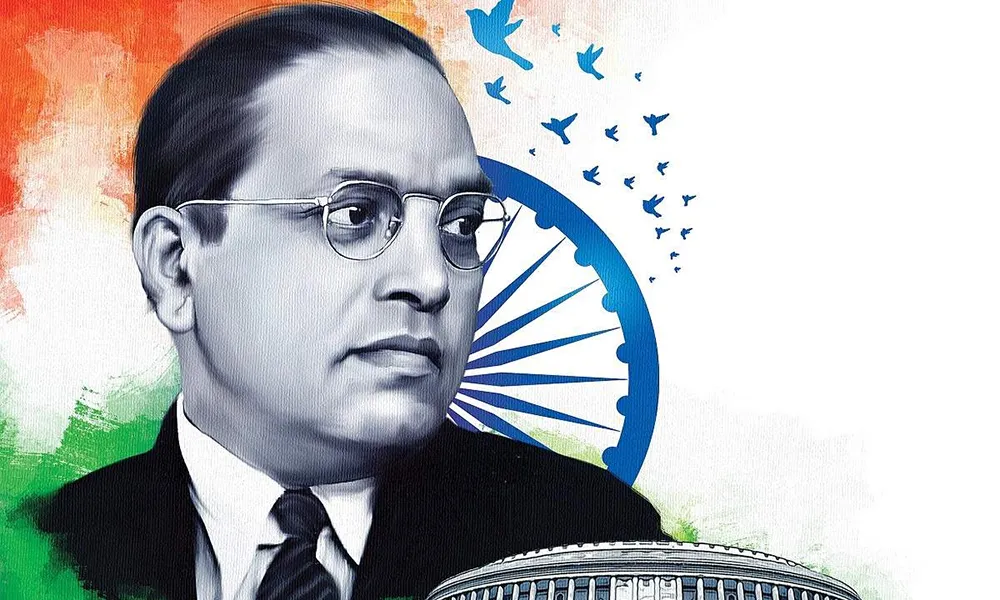- By Sarju Saran Tiwari
- Mon, 14 Apr 2025 08:55 AM (IST)
- Source:JND
Dr. B.R. Ambedkar Jayanti 2025: Today marks the birth anniversary of Dr. Bhimrao Ramji Ambedkar, fondly known as Babasaheb, a visionary leader who transformed India through his relentless pursuit of education and social justice. Born on April 14, 1891, in Mhow, Madhya Pradesh, Ambedkar faced immense challenges due to caste-based discrimination but emerged as a beacon of hope for marginalized communities.
Ambedkar’s educational journey was extraordinary, spanning institutions like Columbia University and the London School of Economics. His academic achievements laid the foundation for his fight against untouchability and his efforts to uplift Dalits through education and political representation. As the principal architect of the Indian Constitution, he embedded principles of equality and fraternity into India’s legal framework, leaving an indelible mark on the nation.
Also Read: Heatwave Hits India: School Timings Revised In Delhi, Maharashtra, MP, Odisha And Other States
Early Life and Struggles
Born into a Dalit family, Ambedkar experienced untouchability firsthand during his school years in Satara and Bombay. Despite these challenges, he became the first in his community to graduate high school in 1907. His marriage took place shortly after this milestone in a modest ceremony.
Ambedkar’s academic aspirations were supported by Sayajirao Gaikwad of Baroda, who provided him a scholarship to study at Elphinstone College, Bombay. After completing his graduation in economics and politics, he joined Baroda Sansthan but faced severe discrimination due to his caste.
Academic Achievements Abroad
Ambedkar’s educational journey reached new heights when he was selected as a scholar to study in the U.S.A. at Columbia University in 1913. He earned an M.A. and Ph.D., focusing on caste dynamics and economic studies. Later, he pursued further studies at the London School of Economics and Political Science, obtaining an M.Sc., D.Sc., and Bar-at-Law degrees while briefly studying at Bonn University in Germany.
His thesis on topics like "Castes in India" and "Problem of Rupee" showcased his intellectual depth and commitment to addressing India’s socio-economic issues.
Contributions to Social Reform
Returning to India in 1924, Ambedkar founded associations like Bahishkrit Hitakarini Sabha to promote education among Dalits and improve their socio-economic conditions. He launched newspapers such as Bahishkrit Bharat to voice concerns of marginalized communities.
In 1935, Ambedkar announced his decision to renounce Hinduism due to its caste-based hierarchy. This declaration inspired thousands of followers who later joined him in embracing Buddhism during a historic ceremony in Nagpur on October 14, 1956.
Architect of Modern India:
As Chairperson of the Drafting Committee for the Indian Constitution, Ambedkar ensured provisions for equality, liberty, fraternity, and abolition of untouchability. His vision shaped India’s democratic structure while safeguarding minority rights.
He also served as the first Minister of Law and Justice but resigned in 1951 due to differences over policies like the Hindu Code Bill.
Legacy and Honors
Dr. B.R. Ambedkar’s contributions extend beyond social reform—he played a role in forming institutions like the Reserve Bank of India based on his economic studies. Posthumously awarded the Bharat Ratna in 1990, his legacy inspires movements for equality worldwide.
5 Lessons Students Can Learn from Dr. B.R. Ambedkar’s Life:
Equality for All: Treat everyone with respect and dignity, irrespective of caste, religion, or socioeconomic status.
Education is Empowerment: Knowledge is the key to success and personal growth; strive for continuous learning throughout life.
Perseverance Through Adversity: Overcome challenges with determination and resilience, as Ambedkar did despite societal discrimination.
Self-Respect and Dignity: Value yourself and others, fostering personal growth and mutual respect.
Social Responsibility: Contribute to building an inclusive and just society through active participation and service
Ambedkar’s life exemplifies how education can overcome barriers and drive societal transformation—a lesson that continues to resonate today!
